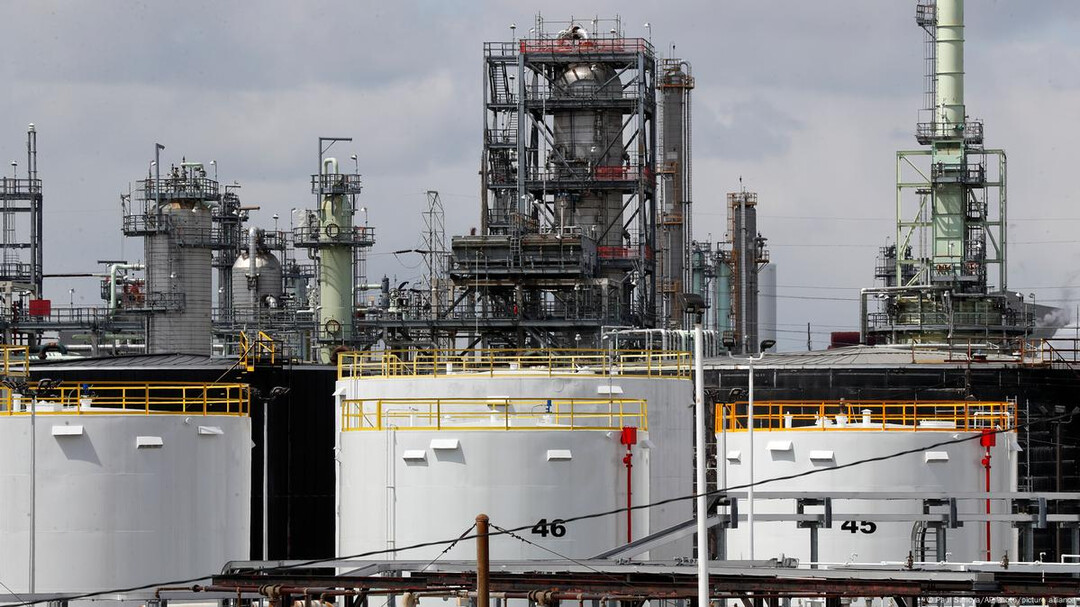
The U.S. Congress voted on Thursday to repeal a federal fee on oil and gas producers who release high levels of methane, undoing a key part of former President Joe Biden's climate policy aimed at controlling the "super pollutant" that warms the planet. The fee, which was not yet in effect, was projected to generate billions of dollars.
In a vote that fell along party lines, the Senate voted 52-47 to repeal the fee, following a similar vote in the House of Representatives on Wednesday. The measure now goes to President Donald Trump, who is expected to sign it into law.
Methane is a greenhouse gas that is far more potent at warming the atmosphere than carbon dioxide, especially in the short term, and is responsible for about one-third of global warming to date. Oil and gas producers are among the largest emitters of methane in the United States, and controlling it is critical to addressing climate change.
Most large oil and gas companies do not release enough methane to trigger the fee, which is $900 per ton, rising to $1,500 by 2026. The measure was part of the 2022 Inflation Reduction Act, but the Environmental Protection Agency (EPA) did not formally establish the rules until late last year.
The fact that they were established so late made them vulnerable to the Congressional Review Act, which allows lawmakers to pass a resolution to undo rules that are finalized toward the end of a president's term. If those resolutions are passed and the president signs them, the rule is terminated and agencies cannot issue a similar one again.
"It is a sad testimony to the influence of big oil on Capitol Hill that one of the top priorities of Congress is a blatant giveaway to the worst actors in the fossil fuel industry," said Tyson Slocum, director of the energy program at Public Citizen, a nonprofit advocacy group.
The American Petroleum Institute (API), the largest lobbying group for the oil and gas industry, praised the measure, calling the fee "a duplicative and punitive tax on American energy production that stifles innovation."
"Thanks to industry action, methane emissions continue to decline as production increases, and we support building on this progress through smart, effective regulation," said Amanda Eversole, executive vice president and chief advocacy officer at API.
Globally, methane concentrations in the atmosphere have been steadily increasing.
Republican Sen. Shelley Moore Capito, who chairs the Senate Environment and Public Works Committee, spoke in favor of the repeal on the Senate floor.
"We should be expanding natural gas production, not restricting it. Instead, the natural gas tax will limit American natural gas production, leading to higher energy prices and providing a boost to natural gas production in Russia," she said.
When gas leaks occur, the producer is wasting gas that could be conserved and sold.
"Republicans are helping the absolute worst offenders of methane leakage," said Sen. Sheldon Whitehouse, the top Democrat on the environment panel. "Companies only pay the methane fee if they fail to meet their own industry standard for ... preventing leaks of a dangerous, explosive, and poisonous greenhouse gas."
The repeal of the methane fee is the latest in a series of pro-oil and gas measures that Republicans have taken since Trump's term began. On his first day, he declared a national energy emergency, calling for more oil and gas production and fewer environmental reviews. Democrats failed to override that declaration yesterday. Trump has also lifted a pause on new applications for liquefied natural gas export terminals, withdrawn the United States from the Paris climate agreement, and moved to open more public lands and waters to oil and gas drilling.
The fee on methane releases was intended to push companies to adopt better practices to reduce emissions and make their operations more efficient. The EPA had said the fee was projected to reduce 1.2 million metric tons of methane emissions by 2025, roughly equivalent to taking 8 million cars off the road for a year.
The Biden administration had also implemented methane regulations on existing oil and gas wells, after addressing cases of methane escaping from new wells. At the time, the EPA intended the fee to complement that rule and focus on the worst polluters.
Approximately half of all methane emissions from wells come from just 6% of smaller producers, according to a recent study.
[Copyright (c) Global Economic Times. All Rights Reserved.]




























